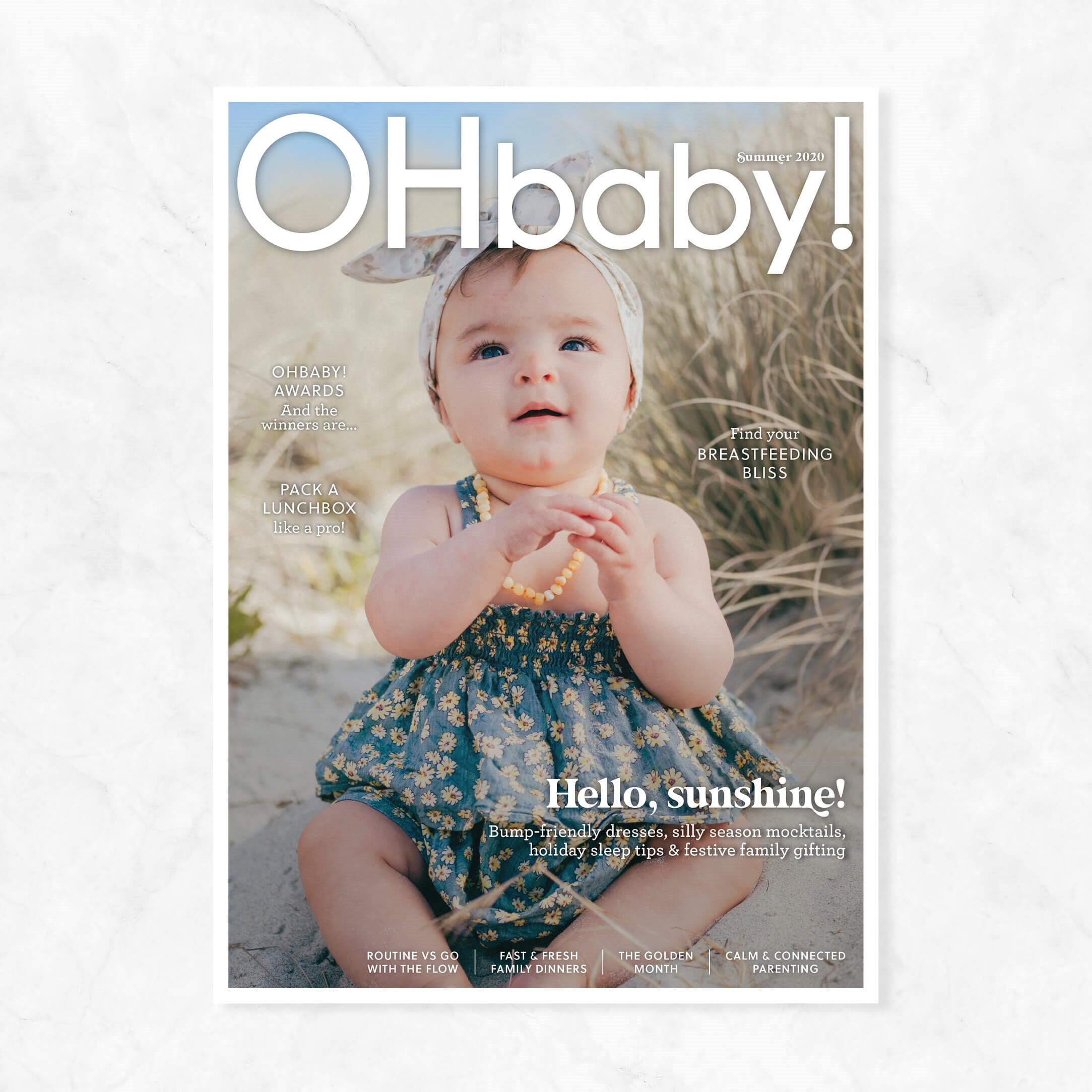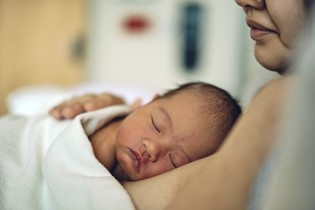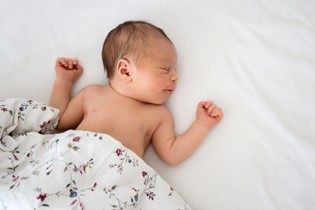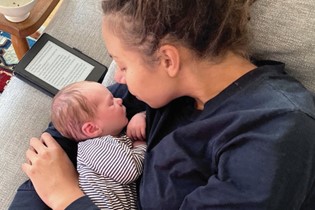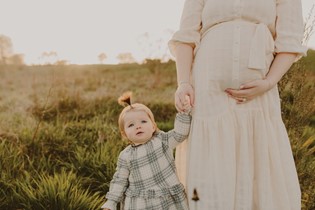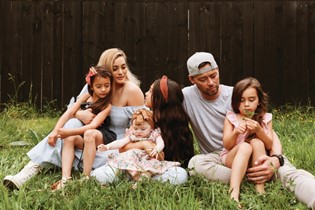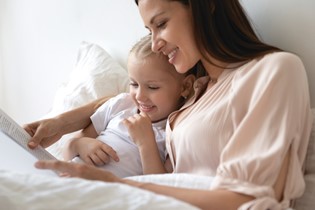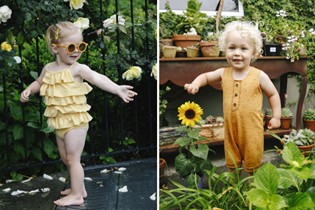Golden Month: Caring for the world's mothers after childbirth
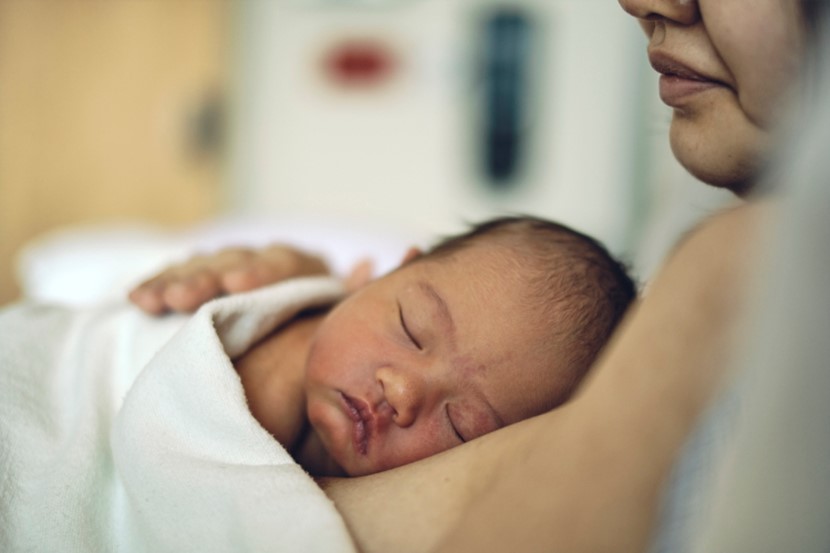
Jenny Allison is passionate about the care of mothers in the 40 days after childbirth. Her book Golden Month, is the result of a decade researching how different cultures do just that.
Imagine this: A few days ago you had a baby. You wake up at home in your warm, quiet room to the delicious smell of a hot breakfast coming your way accompanied by cinnamon tea with ginger and cardamom, and warmed walnuts to nourish your blood and brain. Your mother or aunty holds the baby while you eat and then you spend your day resting or attending to your baby – your only responsibility. If you need to have a wash or to sleep, there will be someone to step in and take over. When you need reassurance or when you need to express yourself and talk, there is always someone on hand. Your meals are delivered when you expect them and your team of helpers all know what is required of them and carry out what is necessary to make you happy and comfortable.
The Western mother may sigh at this beautiful scenario and say, 'I wish!' but actually it’s happening right now, with slight variations, in traditional cultures all over the world, from Africa to Asia. This particular experience is from a Middle Eastern Druz mother. Here are her own words about her ‘Golden Month’, her 40 days postpartum:
“Physically, the mother is not doing anything. She is not allowed to do anything … everyone [else] is cleaning, and cooking. She is not even allowed to squeeze a washcloth because it can make her joints painful, so she is like a queen.
Emotionally, the mother is very vulnerable too, so [she is] kept away from the news, from bad talking like gossip, stressful events that are occurring around her, both personal and non-personal. Of course if there is something critical that she has to know then [they] let her know, but otherwise she is very enclosed. Whatever you can spare her from ... just spare her.
If there is some sort of stress, the mother is really encouraged to talk, to let it all out, to her partner, to her friends, to her sister, just talk and let it out. They call this ‘nafas’, like 'exhaling' ... you exhale your emotions, your stagnating thoughts, and you become empty in order to renew yourself."
Many mothers describe similar experiences of being cared for after childbirth. They often say they feel ‘like queens’ and everything is done for them. One Samoan mother told me that even her hair was brushed by her helpers. Many women received massage in some form. All were honoured.
In spite of the inroads of Western postpartum attitudes, these cultures do still recognise the postpartum for what it is: a unique and powerful transition in a woman’s life.
In a few short weeks, as she recovers her strength and learns to mother her new baby, a woman undergoes changes of unparalleled intensity on all levels of her being.
She enters a rite of passage which literally changes who she is, and she begins a relationship with her newborn which will be a template for the baby’s trusting relationships with other human beings, and a bond which will last their lifetimes. These are enormous changes and they require space and unhurried time to successfully negotiate.
Good care at this moment is therefore crucial to a mother’s recovery and wellbeing and it has lasting short- and long-term benefits for her health, and for her relationship with her baby, as well as for her family and wider community. To care well for her creates strong future generations.
In modern Western society and current medical practice, care of the mother has become a neglected aspect of the postpartum period; midwives have even described it as the ‘Cinderella period’, because the mother is invisible and her needs are not prioritised. There is a lack of awareness of its importance, but this was not always the case. Up until the early 1900s, before there was widespread medicalisation of birth, midwives, friends and relatives attended to the mother while she was in labour, and were also there for her ‘lying-in’ period afterwards. The post-partum was a community affair that allowed the mother to get good rest and time to recover, and to bond with her baby. It also fostered the strengthening of social bonds within the community.
In the last 100 years however, the community aspect of birthing has been lost, and with it the support and everything that goes with that.
With our current estimates of postnatal depression at up to 20% in some Westernised cultures, we need a wake- up call in our thinking and practices.
It is time for us as mothers to re-learn to do the postpartum well, and for others to care properly for us. In this we have a lot to learn from traditional practices and cultures worldwide.
What does good care of the mother involve?
During this extraordinary 40 days of transition to motherhood, the physical and emotional environment must hold mothers protectively. How can we help achieve this in practical terms?
In traditional postpartum practice there are four main aspects of good care that need to be fulfilled. They are rest, warmth and massage, a proper diet and support.
Rest easy
The sort of rest that enables deep recovery is absolutely crucial during the 40 days. You can receive all the nutritious, food and support from willing helpers that you can, but you still cannot recover fully unless you have enough proper rest. This means, basically, total rest with your baby, in a protected, quiet and warm space.
After childbirth the body is diverting massive amounts of energy (25% of its energy output) towards lactating. There is also healing and various changes taking place in almost all of the body's systems: the hormonal, cardiovascular and metabolic systems, the musculoskeletal structure, not to mention the reproductive organs. On top of this there are the broken nights and the huge psycho-emotional changes of early motherhood. It is like running a marathon plus some! So the challenge is to be able to let go, rest and, like the Druz mother, allow your helpers to do everything for you.
This is not as easy as it might seem for young mothers who have been educated that to be independent and not ask for help is to be ‘strong’. Many have also internalised damaging messages about body image and weight loss after childbirth. There is a drive to get straight back into their usual lives without tuning into their real needs postpartum. Ironically, when you don’t get enough rest, the body produces high cortisol levels as a stress response, and high cortisol is actually a big factor in postpartum weight gain. It makes the rush back to the gym totally counterproductive. Also, the joints, muscles and ligaments are still softened by pregnancy hormones, so to put pressure on them through vigorous exercise can easily cause damage.
Warmth and massage
Massage is the ideal passive exercise for the postpartum. It gives the feeling of wellbeing that you get from a good exercise session, without you having to expend any energy. Its benefits are delivered through warmth and friction, and the loving intention of the massage therapist. Massage helps to strengthen and re-align the joints and muscles, which is helpful in avoiding future back pain, and it delivers a good supply of blood to the healing reproductive organs. It also warms and energises the whole body.
The other great benefit of massage is that loving touch is a powerful way of grounding the new mother in her body, and settling her mind.
During the postpartum period, the traditional view is that the mother ‘walks between the worlds’. This is a powerful state of being spiritually, but at the same time it can easily make her feel destabilised.
Everywhere in the world, massage is applied with warmth to enhance its effects, using warmed oils or hot towels, and steam. The new mother is said to be relatively cold and ‘deficient’ after childbirth so she needs to be brought back into ‘balance’. In Western terms, warmth promotes the release of oxytocin (while cold stimulates adrenaline!), so even just keeping warm is a treatment in itself as well as massage. The common practice of wrapping the hips is not just to stabilise joints and organs, but also to warm them. There is also the popular Chinese ‘mother warming’ practice where a lighted herbal stick is held above certain areas of the pelvis and lower back to support the recovery of the ‘essence’ which resides in this part of the body and is the source of all constitutional energy.
Food, glorious food
Pregnancy and lactation are major nutritional stressors on a woman's body. Nutrient reserves are depleted in pregnancy, and if they're not supported and a woman goes into postpartum in a state of ‘deficit’, it will be hard for her to recover her reserves. The negative effect of poor nutrition on mental wellbeing is well documented, and in women, poor nutritional reserves are also associated with an increased risk of postpartum depression. It can also contribute to a general state of postpartum depletion that may even manifest with various symptoms for years after childbirth.
Food for new mothers must do three things. It must replace lost nutrients and blood from giving birth, repair damaged tissue and heal the vagina and uterus, and support breastfeeding. It must deliver energy in the form of complex carbohydrates. And it must be nutrient-dense for healing and the creation of blood and milk, ie a digestible source of good quality protein and essential minerals (bone broths and casseroles are ideal). There's also a simple fourth requirement, which is that food needs to be a source of warmth (to support good digestion and the release of oxytocin, the 'feel-good' hormone).
All around the world, chicken soup is a postpartum star. In Chinese medicine we say it boosts energy, nourishes the blood, aids digestion, supports lactation and calms the spirit. In Western terms we say that chicken soup supports the nervous and immune systems, improves digestion, reduces allergies, and relaxes and strengthens the body.
Mothering the mother
Support for the mother is the foundation of all the other postpartum practices. Without good support, none of the other practices can be effective.
Firstly, the mother needs to have people around her who not only care for her appropriately, but who also model good care. This is how we learn to be mothers ourselves, by accepting physical and psychic nourishment from our carers. Mothering the mother gives safety and reassurance in moments of change. In addition, it has always been the job of the older women to teach the mother about breastfeeding. The evidence from research into the high success rates of breastfeeding in traditional cultures shows not that these mothers are inherently more capable of breastfeeding, but that their own mothers are usually on hand all the time to show them what to do.
Secondly, I want to emphasise the incredible benefits of honouring the mother after childbirth. Again, this is very much part of traditional care practices, where the mother’s status is high and she is treated like royalty. It is well known through both modern research and traditional wisdom that high self-esteem is associated with lowered stress levels (and normal cortisol levels) and lower postpartum depression rates, and that raised status contributes to high self-esteem. On the other hand there is a greater sensitivity to status when cortisol is high, and cortisol tends to be initially high after giving birth. Thus it makes really good sense to give mothers authentic praise and attention at this point.
Finally, it's important to remember that while this Golden Month is a deep-recovery space of withdrawal from everyday life for a new mother, her supporters must never make her feel she is constrained or not in control of her care. Disempowerment is very stressful. While interviewing mothers from around the world to research Golden Month, I noticed they were happy to be treated as queens for their 40 days, to have total rest, and to have everything done for them. The knowledge and practice has been around for many generations for good reason. If we can learn about or rediscover the postpartum and tune in to how we want to be looked after, then we can take this wonderful opportunity of the Golden Month to recover well, strengthen our health and step into our power as mothers.
READ ONE MAMA'S PERSONAL EXPERIENCE OF HER GOLDEN MONTH
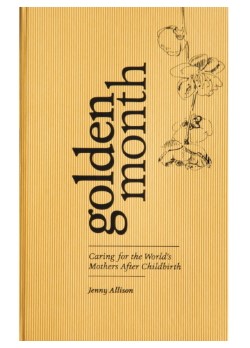
Jenny Allison is an acupuncturist who has spent the last 25 years studying, teaching and working with women using acupuncture and Chinese medicine. She lives in Auckland.
Golden Month: Caring for the World's Mothers After Childbirth by Jenny Allison, Beatnik Publishing, RRP$30, beatnikbooks.co.

AS FEATURED IN ISSUE 52 OF OHbaby! MAGAZINE. CHECK OUT OTHER ARTICLES IN THIS ISSUE BELOW
